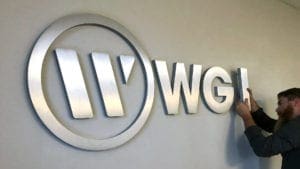
Construction Update: Palm Beach Yacht Club Breakwater
WGI developed a unique solution to the Yacht Club’s problem – helping dissipate forces without stopping the water flow completely.
Learn from award-winning professionals — explore our whitepapers, blogs, and the latest industry updates.
Join our dynamic organization of engineers, land surveyors, landscape architects, environmental scientists, and architects!
Talk to a market leader today! We’ll answer any questions you have about our professional services.

Pro bono publico is a Latin phrase (for the public good) used to define professional work undertaken voluntarily and without payment, or at a reduced fee, as an act of public service. Unlike traditional volunteerism, pro bono services use the specific skills of professionals to provide services to those who are unable to afford them.
Why does the staff at WGI do pro bono work? I believe it is fundamental to our profession as civil engineers; from the beginning of our studies, we are taught to serve and protect the public with our talents and knowledge of engineering and understanding of the sciences. Our daily work lives are consumed by tasks and projects we do for a fee because of our knowledge and ability. We find those endeavors both challenging and fulfilling, and being paid to do what we love is the bonus.

Over the years, I discovered another satisfying way to use this knowledge and I guarantee if you choose a cause or organization that is passionate about its mission, pro bono work will put a lift in your step and a smile on your face.
The Andrew “Red” Harris Foundation approached WGI a few years ago with a dilemma – it had a conceptual design for an artificial reef module that needed the expertise of a structural engineer. The foundation had been working on an artificial reef site for two years in the ocean off the shores of Jupiter, Florida. This new module had to be proven safe by professional engineers before the County would allow its use. All agreed the proposed design had great potential to be a successful model that would attract and sustain fish and new coral and seaplant life — but without proper engineering input, the County feared it would not be safe to transport or deploy, and questioned whether it would be strong enough to withstand the forces of hurricane-driven waves.
The modules were a unique shape — I like to refer to them as the “Pringles Chip” module (the foundation calls them “coral heads” since their design is inspired by the structure and function of Bahamian coral heads). The challenge was to design something that could be safely lifted, transported, and deployed by barge without breaking apart and was durable enough to withstand a hurricane.

Working with the artistic designer, we created a strong backbone and internal skeleton for the module, and a nice sturdy lifting hook. The modules were successfully transported, deployed safely, and are helping the foundation meet its mission of “Building Artificial Reefs for Life.”
Although we accepted no money for our designs, we gained some great new friends — both human and aquatic. It was very fulfilling having the Harris family thank us and show genuine appreciation for our help, and it was amazing working with the artist and contractor who fabricated and deployed the modules. Everybody was rowing the boat in the same direction, looking for answers and offering suggestions. It was how every design project should be accomplished.
Round one was just the beginning. The next dream was to create a 17-foot tall replica of the iconic Jupiter Lighthouse to be deployed on the same Jupiter reef site – which is now guiding our aquatic friends to a great artificial reef home that might also help guide our human friends to witness a new reef come to life.
Being involved in this project was fun, challenging, and for a brief moment we weren’t concerned with effective multipliers and profit.
Learn more about The Andrew “Red” Harris Foundation and the ARHF Reef here: http://andrewredharrisfoundation.org/

WGI is a national design and professional services firm leading in technology-based solutions for the construction of public infrastructure and real estate development. At WGI, we’re providing Tomorrow’s Infrastructure Solutions Today.

WGI developed a unique solution to the Yacht Club’s problem – helping dissipate forces without stopping the water flow completely.

Welcome back to WGI Unleashed! In this episode, we have the opportunity to chat with Jeffrey Bergmann, P.E., Director, Specialty Structures.

We’re refreshing our brand to reflect the energy, inspiration, and excitement that we feel when we come to work every day.

WGI moves up 37 spots on Engineering News-Record (ENR)’s 2020 Top 500 Design Firms List.

WGI stayed in growth mode throughout the pandemic as it moved to expand its geographic footprint by furthering early steps at organic expansion.

The City Marina in Delray Beach, FL, has received several much-needed & well-deserved improvements to enhance functionality, safety, & overall appeal.
You’ve been searching for a place like WGI. We look forward to meeting you soon.
Sign up to receive emails to hear our latest news and achievements in our monthly newsletter.
Enter your zip code, and we’ll personalize your experience with local projects, office locations, team members, and more.
WGI supports its associates with meaningful opportunities for growth, strong benefits and perks, while we work collaboratively with clients and co-consultants to shape and improve communities.






WGI is a dynamic organization with opportunities nationwide for engineers, land surveyors, landscape architects, environmental scientists, and architects.